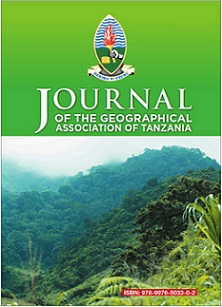The role of indigenous Weather Forecast in Enhancing agricultural Production in Tanzania
Abstract
Tanzania as most Sub-Sahara countries depend mostly on rain-fed agriculture, which makes itvulnerable to the erratic patterns and variability of rainfall. A study was conducted in Burunga and
Mbalibali villages in Serengeti district, Tanzania to determine the role of indigenous knowledge
systems (IKS) in understanding and disseminating information on rainfall patterns and variability
for crop productivity improvements. The paper aimed to understand the process of Drawing on
findings of interviews and focus group discussions the paper suggests that agricultural activities are
practised based on indigenous knowledge €“ informed by indicators developed over time and space €“
to understand the onset and end of rainfall. The indicators for predicting onset, end, and the amount
of rainfall are mainly based on the observations of the changing characteristics of the surrounding
environment on the atmosphere (wind systems, stars, moon); on the land surface (flora and fauna);
and natural systems. These indicators are owned mainly by IKS holders who are mainly elders.
Elders then transmit this knowledge to youngsters through either word of mouth or best practices
or experiences when conducting socio-cultural and economic activities. The knowledge is then
employed for planning and production of agriculture; and processing and storage of agricultural
harvests. These findings form the basis for concrete recommendations to the governments in Africa
to formulate policies and enact laws to backup indigenous based technologies for sustainable
development.
Downloads
Published
2017-05-24
Issue
Section
Articles


